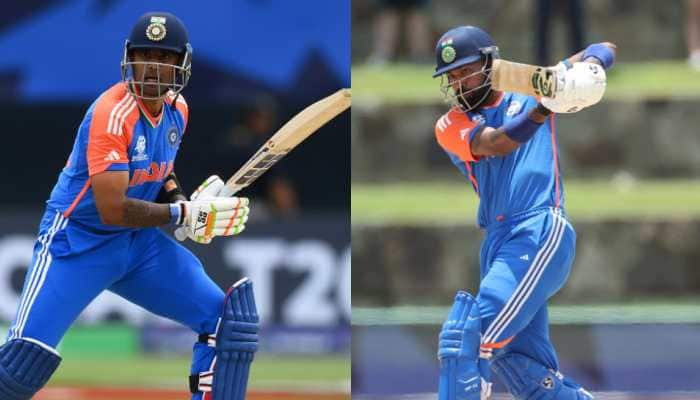Vladimir Putin says Russian economy not in crisis
Russian President Vladimir Putin said Tuesday the country's economy was not in crisis and that the worst was over, as the central bank is set to meet this week to decide whether to lower the interest rate following the ruble's rebound.
Trending Photos
)
Moscow: Russian President Vladimir Putin said Tuesday the country's economy was not in crisis and that the worst was over, as the central bank is set to meet this week to decide whether to lower the interest rate following the ruble's rebound.
"We have passed through the main peak of stress," Putin said at a media forum in the northwestern city of Saint Petersburg.
"That doesn't mean everything in the country will now start to grow upwards. Maybe we even have yet to feel what happened at the end of the last year and at the start of this one," Putin said.
"Over the course of the year we will feel this and it will be reflected in various indicators," he said.
"But as a whole, it's already clear that there isn't any collapse," Putin insisted, stressing that the "foundations of the Russian economy have grown stronger and stability cannot be completely destroyed."
"I wouldn't even call it a crisis," Putin added. "There are certain phenomena, certain difficulties."
As a result of the ruble's plunge in value in late 2014 and at the start of this year following Western sanctions over the Ukraine conflict and falling oil prices, Russia's growth fell in the first quarter compared with the same period a year earlier, for the first time since 2009.
The Russian government has estimated that the economy contracted 2.2 percent in the first quarter.
A surge in inflation led to a fall in purchasing power and consumption while a sharp hike of the interest rate in December by the central bank led to a steep decline in lending and business activity.
The ruble's rebound (by more than 30 percent since early March) gives grounds for hope that the recession expected this year will not be as deep as expected.
The authorities are hoping the bounce-back will encourage the central bank to significantly lower the interest rate which it has already cut twice this year, reducing it from 17 percent at the start of the year to the current 14 percent.
The Bank of Russia on Thursday will hold its next meeting on monetary policy and most economists predict that it will lower the interest rate by at least one percentage point.
The economy minister Alexei Ulyukayev said Monday that the situation was "quite favourable" for an interest rate cut.
The strengthening of the ruble "gives the central bank room for manoeuvre," said VTB Capital economists.
"We have passed through the main peak of stress," Putin said at a media forum in the northwestern city of Saint Petersburg.
"That doesn't mean everything in the country will now start to grow upwards. Maybe we even have yet to feel what happened at the end of the last year and at the start of this one," Putin said.
"Over the course of the year we will feel this and it will be reflected in various indicators," he said.
"But as a whole, it's already clear that there isn't any collapse," Putin insisted, stressing that the "foundations of the Russian economy have grown stronger and stability cannot be completely destroyed."
"I wouldn't even call it a crisis," Putin added. "There are certain phenomena, certain difficulties."
As a result of the ruble's plunge in value in late 2014 and at the start of this year following Western sanctions over the Ukraine conflict and falling oil prices, Russia's growth fell in the first quarter compared with the same period a year earlier, for the first time since 2009.
The Russian government has estimated that the economy contracted 2.2 percent in the first quarter.
A surge in inflation led to a fall in purchasing power and consumption while a sharp hike of the interest rate in December by the central bank led to a steep decline in lending and business activity.
The ruble's rebound (by more than 30 percent since early March) gives grounds for hope that the recession expected this year will not be as deep as expected.
The authorities are hoping the bounce-back will encourage the central bank to significantly lower the interest rate which it has already cut twice this year, reducing it from 17 percent at the start of the year to the current 14 percent.
The Bank of Russia on Thursday will hold its next meeting on monetary policy and most economists predict that it will lower the interest rate by at least one percentage point.
The economy minister Alexei Ulyukayev said Monday that the situation was "quite favourable" for an interest rate cut.
The strengthening of the ruble "gives the central bank room for manoeuvre," said VTB Capital economists.
Stay informed on all the latest news, real-time breaking news updates, and follow all the important headlines in india news and world News on Zee News.
Advertisement
Live Tv
Advertisement







)
)
)
)
)
)
)
)
)
)
